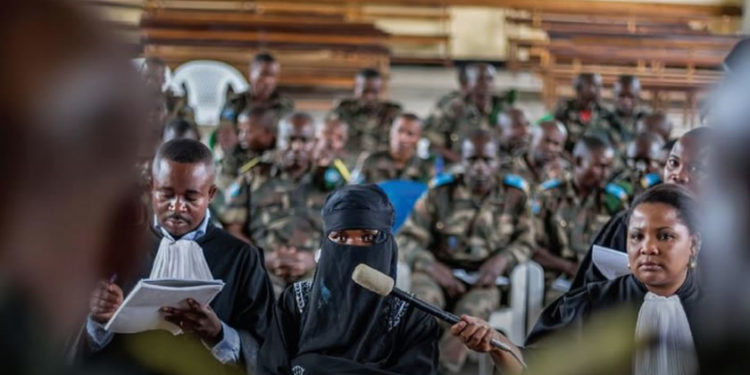The Democratic Republic of Congo government should urgently reform the country’s justice system to better prosecute atrocities, Human Rights Watch said in a report released today. The 102-page report, “Justice on Trial: Lessons from the Minova Rape Case in the Democratic Republic of Congo,” shows how, despite massive international support and attention, the so-called Minova rape trial failed to deliver justice for either the victims or the accused. The report describes the military justice system’s response to the rape of at least 76 women and girls by retreating army troops who rampaged through the small market town of Minova and neighboring villages in eastern Congo in November 2012. “The Minova rape trial was a huge disappointment for victims of one of the worst mass rapes in the country in recent years,” said Géraldine Mattioli-Zeltner, international justice advocacy director at Human Rights Watch. “The Congolese authorities owe it to victims of grave abuses to learn the lessons from this case and to deliver genuine justice in future cases.” A strong public outcry over the mass rape in Minova led to the indictment and trial in a military court of 39 soldiers on charges of war crimes – rape and pillage – and violating military orders. But when the trial was completed five months later, only two low-level soldiers had been convicted of rape. The vast majority of rank-and-file soldiers were convicted of pillage despite weak evidence and other fair trial concerns. High-level commanders with overall responsibility for the troops in Minova were never charged. The judges ordered reparations to be paid by the Congolese state to the victims of rape, pillage, and of one murder, but these have not been disbursed.







